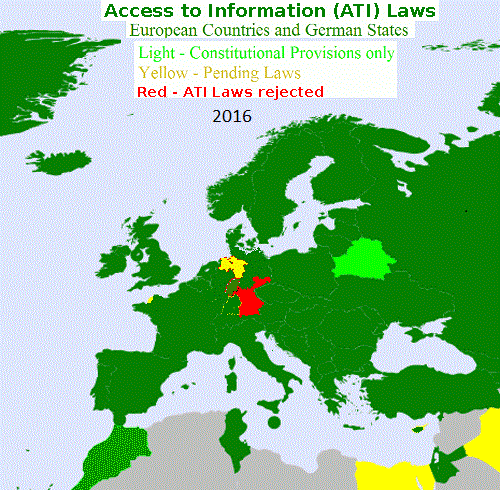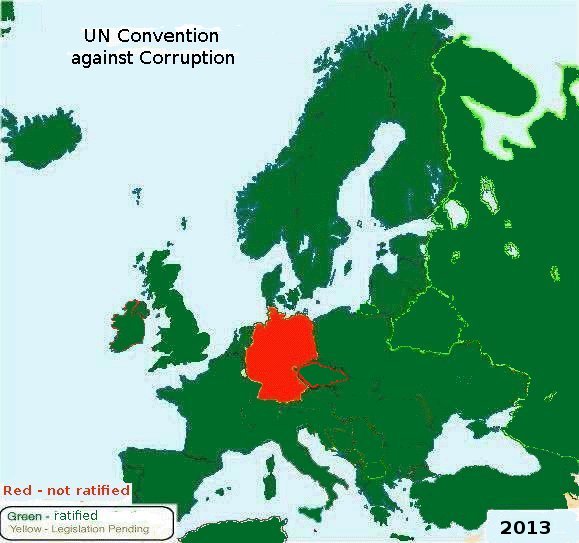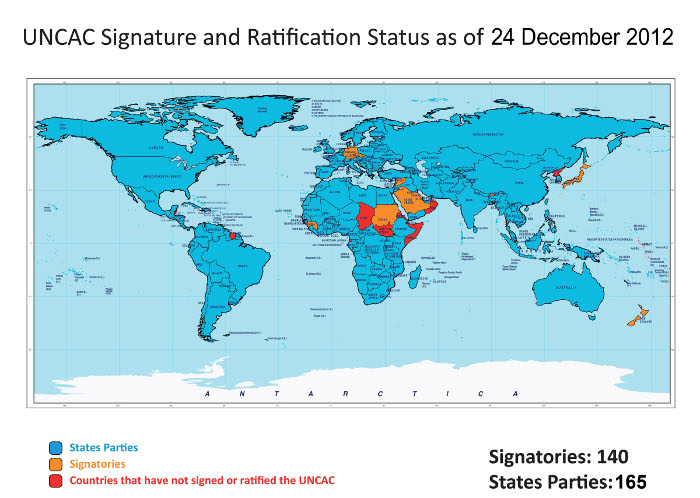"Access to
information held by public authorities is a fundamental human right
which should be given effect at the national level through
comprehensive legislation [...] based on the principle of maximum
disclosure".
UN Special Rapporteur on Freedom of Opinion and
Expression, the OSCE Representative on Freedom of the Media and the
OAS Special Rapporteur on Freedom of Expression 2004
 auf Deutsch über gleiches Thema: http://wkeim.bplaced.net/files/if-eu.htm
auf Deutsch über gleiches Thema: http://wkeim.bplaced.net/files/if-eu.htm
Walter Keim, Email: walter.keim@gmail.com
Torshaugv. 2 C
N-7020 Trondheim, 7. November 2012
Office of the OSCE Representative on Freedom of the Media
Wallnerstrasse 6
A-1010 Vienna
Austria
Support of the Human Right of Access to Public Documents in Germany by
Commenting ATI Laws
Dear Mrs. Mijatovic,
I appreciate your commitment to the human right of access to information.
The OSCE COMMENTS ON THE DRAFT
LAW ON TRANSPARENCY, ACCESS TO INFORMATION AND GOOD GOVERNANCE OF SPAIN
April 2012 (1) state "International documents (...) state that access to
information is a fundamental human right and an essential condition for
all democratic societies." The "principle of maximum disclosure" is
uphold.
I would like to draw your attention to the situation in Germany.
The X.
Baltic Sea NGO Forum found room for improvement analysing transparency
and anti corruption in Germany:
- 88 states with approx. 5.5
billion inhabitants i. e. 78% of the world population give better
access to information then the federal Freedom of Information Law in
Germany (http://www.rti-rating.org/country-data/).
- more than 115 states (http://right2info.org/laws)
with more then 5.9 billion inhabitants i. e.
84 % of the worlds population adopted FOI laws or provisions in
constitutions. 5 German states with half of the population lack FOI
laws.
- The UN Convention against Corruption is ratified
by more than 159 states with more then 6,5 billion inhabitants,
but not by Germany.
- Germany did not ratify the Criminal Law Convention on Corruption and
does not follow Recommendation Rec(2003)4 on common rules against
corruption in the funding of political parties and electoral campaigns
of the Council of Europe as GRECO (Group of States against Corruption)
suggested 4 December 2009.
- Germany is the only state in Europe which has not ratified any of
these to conventions against corruption.
Both EU, Council of Europe (CoE) and the UN Human Rights Committee (HRC)
ignore these problems.
EU demands access to information laws from new members but does not even
observe lack of such laws in "old" member states (2) and refers to the "Council
of Europe has well established human rights mechanisms."
However GRECO (CoE Group of States against Corruption) did not observe the
lack of ATI laws in 5 German federal states (Bundesländer) (3).
The Human Rights Committee praised the high human rights standards of the EU
country Germany, but ignored that it had been informed about the lack of ATI
(4).
Both GRECO and HRC experts do not do the job they are paid for (5).
Therefore OSCE is the only hope.
The Freedom of Information law of the federal state Thuringa adopted 2007
automatically ceases 31. December 2012. Therefore a new law has to be
adopted.
Both the German federation and federal state Thuringa (Thüringen) are at the
moment in the process of reviewing ATI legislation.
Journalists have criticized and commented on the draft Freedom of
Information Law Thuringa: Inventions from hell (8) (Erfindungen
aus der Hölle).
Germany is the least developed state in the OSCE area looking at ATI.
Therefore I would like to suggest that OSCE supports international standards
by commenting the ATI laws of the German Republic (6) and the federal state
Thuringa (7).
Sincerely,
Walter Keim
Copy: Mr. Frank La Rue, UN Special Rapporteur, Fundamental
Rights Agency, Committee
of Human Rights of the German Parliament, German
Institute for Human Rights, Parliamentary parties
in the parliament of the federal state Thuringa
Appendices:
- OSCE (April 2012): COMMENTS
ON THE DRAFT LAW ON TRANSPARENCY, ACCESS TO INFORMATION AND GOOD
GOVERNANCE OF SPAIN: http://www.osce.org/fom/89577
- Keim, Walter (1.September 2011): EU
does not Support the Human Right of Access to Public Documents : http://wkeim.bplaced.net/files/foi-eu.htm
- Keim, Walter (24. August 2012): GRECO
failed in Second Evaluation Round and must therefore do better in
Third Round : http://wkeim.bplaced.net/files/121104foianet.html
- 14. September 2012: Parallel
Report to the Human Rights Committee on the occasion of the
consideration of the Sixth Periodic Report of Germany during the
Committee’s 106 th Session submitted by: Walter Keim, participant of the
Baltic Sea NGO Forum: http://wkeim.bplaced.net/files/foi-ccpr-de.htm
- Keim, Walter (November 2012): Should
GRECO and HRC experts do the job they are paid for? http://wkeim.bplaced.net/files/121104foianet.html
- German Federal Freedom of Information Law: http://www.gesetze-im-internet.de/englisch_ifg/
- Draft Freedom of Information Law Thuringa:
http://www.parldok.thueringen.de/parldok/Cache/8840AA50A9058134424FF1CA.pdf
- www.djv-thueringen.de (30. October. 2012): Informationsfreiheitsgesetz.
Erfindungen aus der Hölle : http://www.djv-thueringen.de/Nachricht.2274+M5c5bf2ff05e.0.html
Answer:
Development:
[Freedom
of Information] [Petitions] [Constitutional
complaint] [Human
rights] [Homepage]
Colours on picture: dark green: FOIA enacted. Yellow:
pending law. FOIA= Freedom of Information Act




 auf Deutsch über gleiches Thema: http://wkeim.bplaced.net/files/if-eu.htm
auf Deutsch über gleiches Thema: http://wkeim.bplaced.net/files/if-eu.htm auf Deutsch über gleiches Thema: http://wkeim.bplaced.net/files/if-eu.htm
auf Deutsch über gleiches Thema: http://wkeim.bplaced.net/files/if-eu.htm